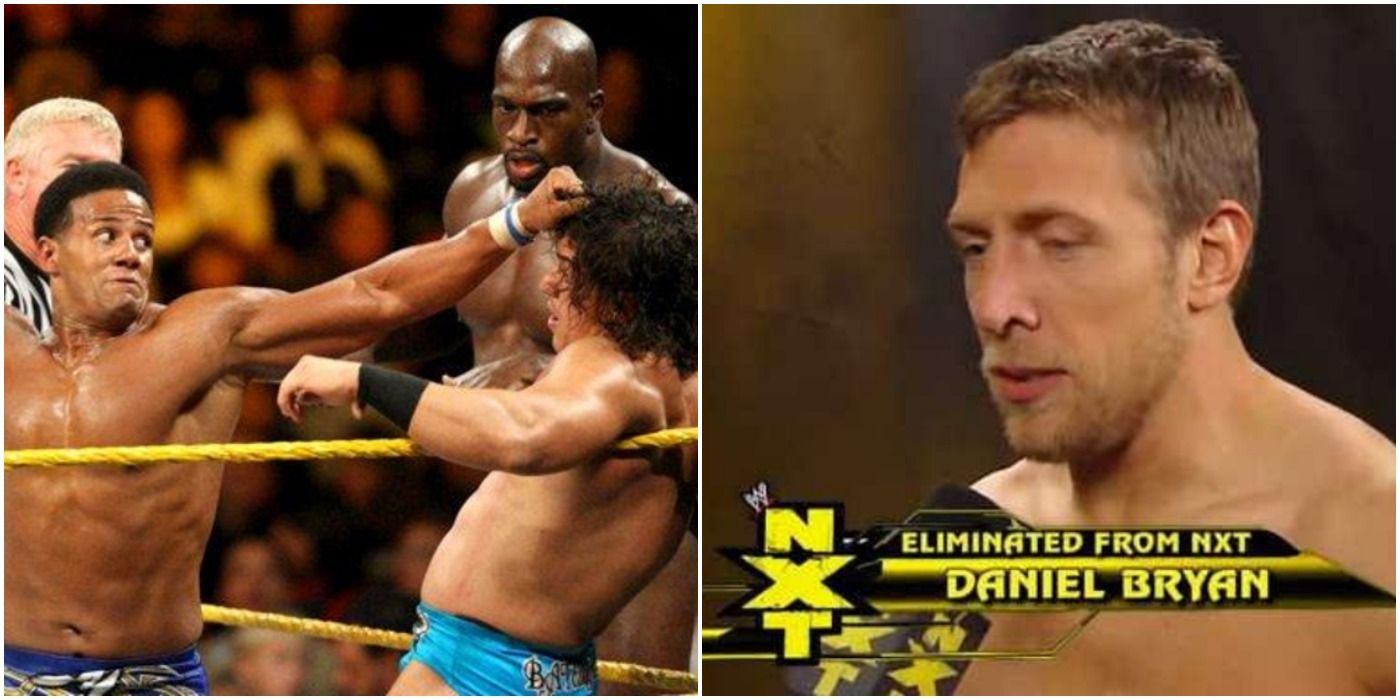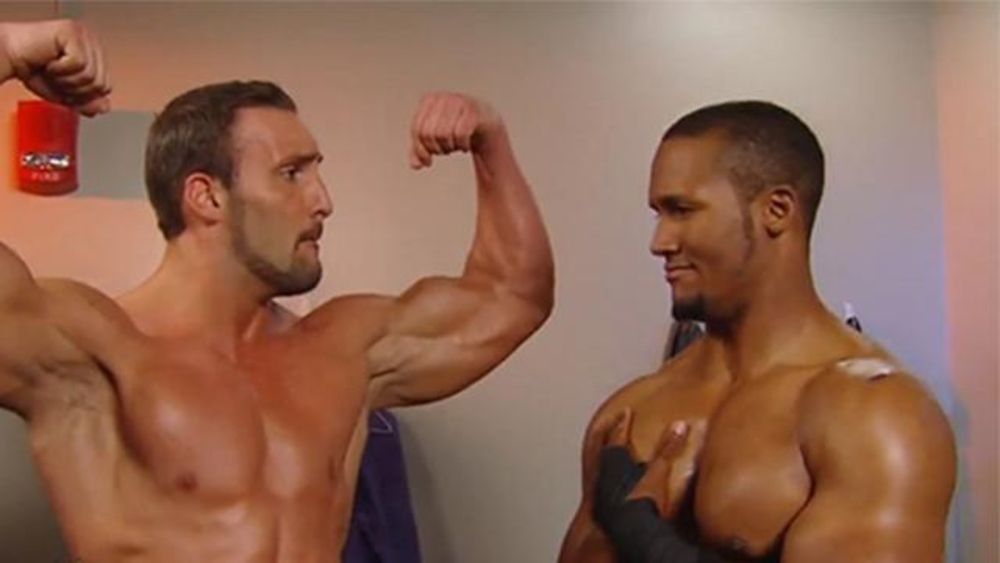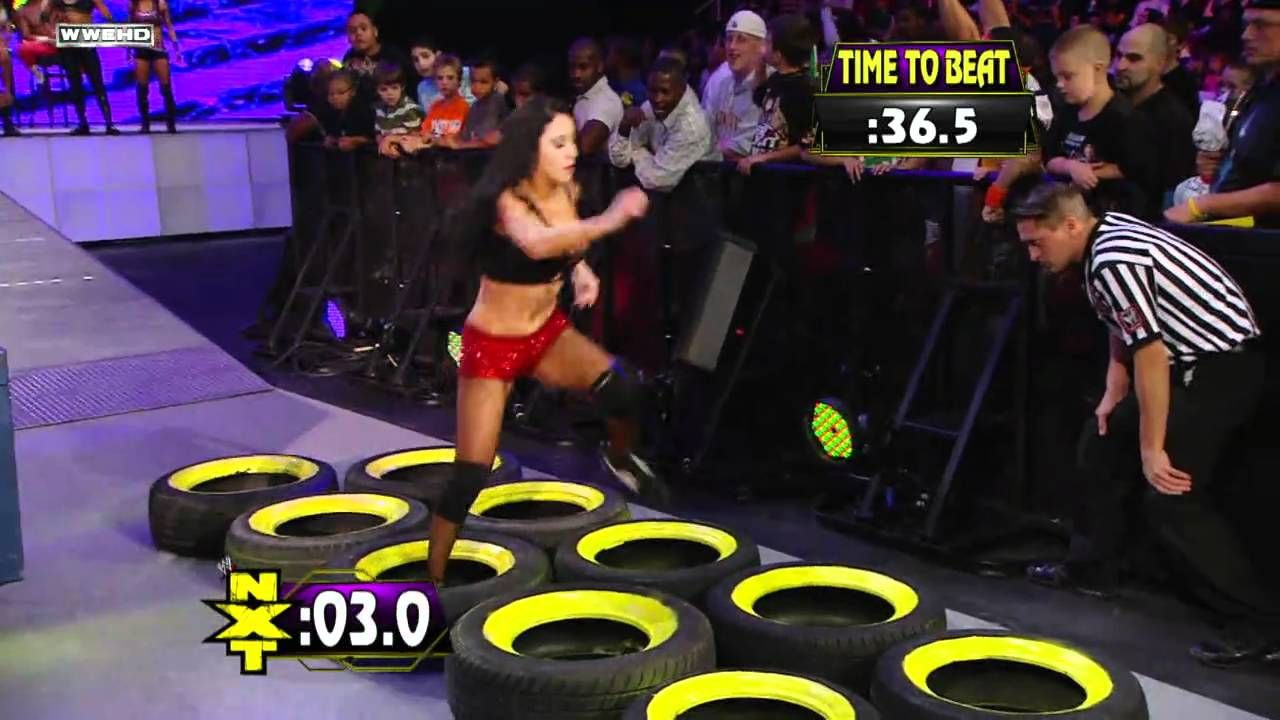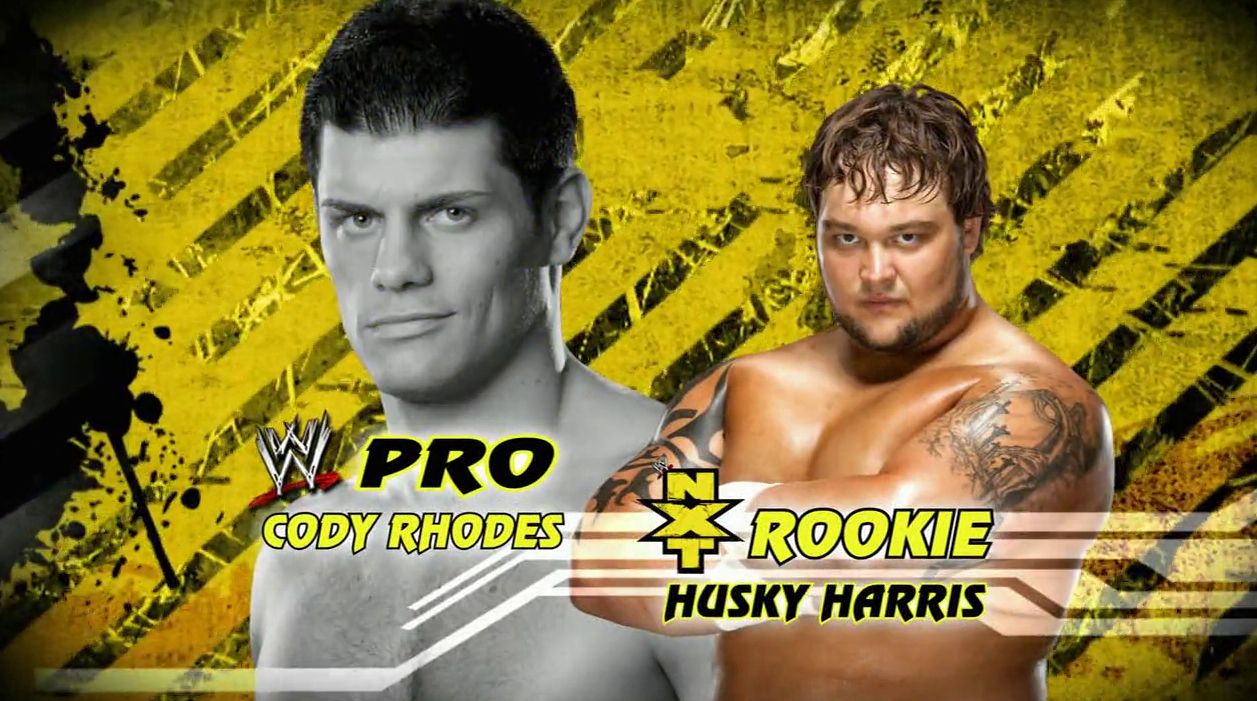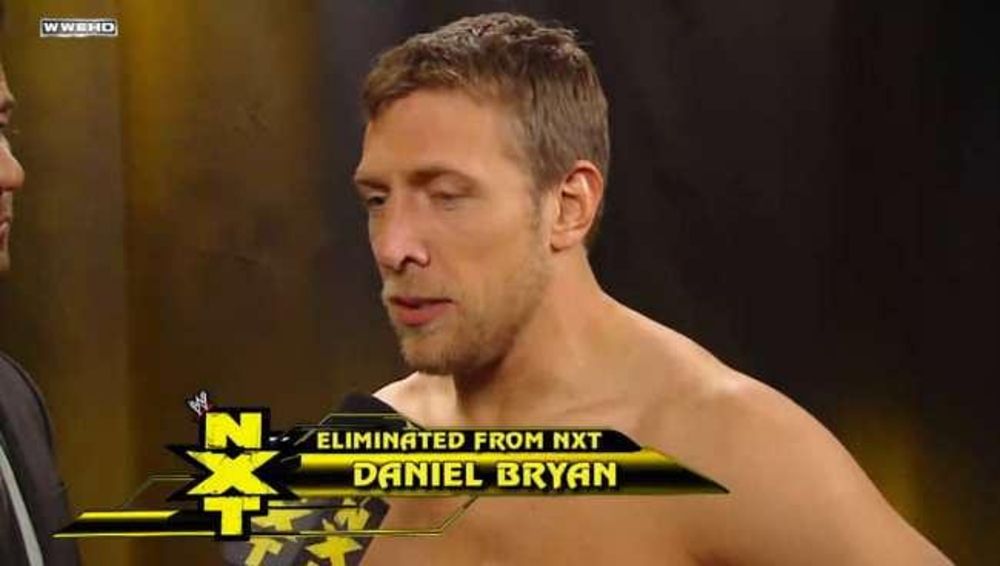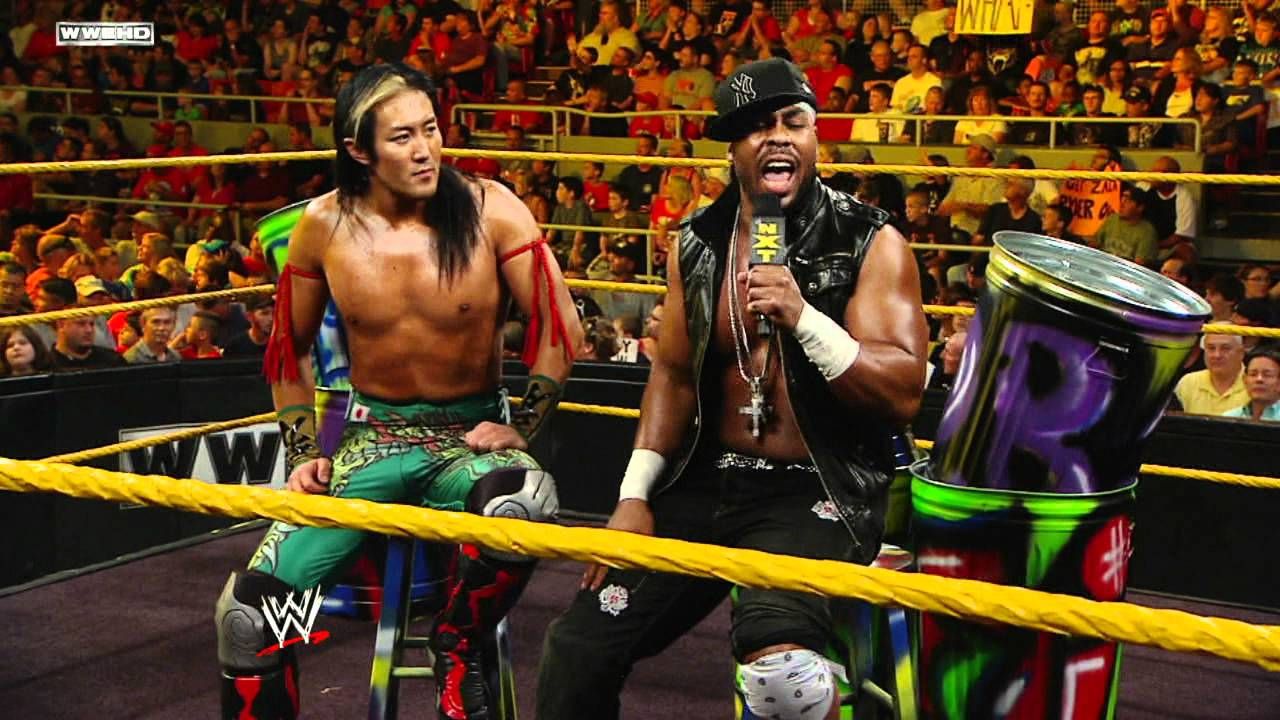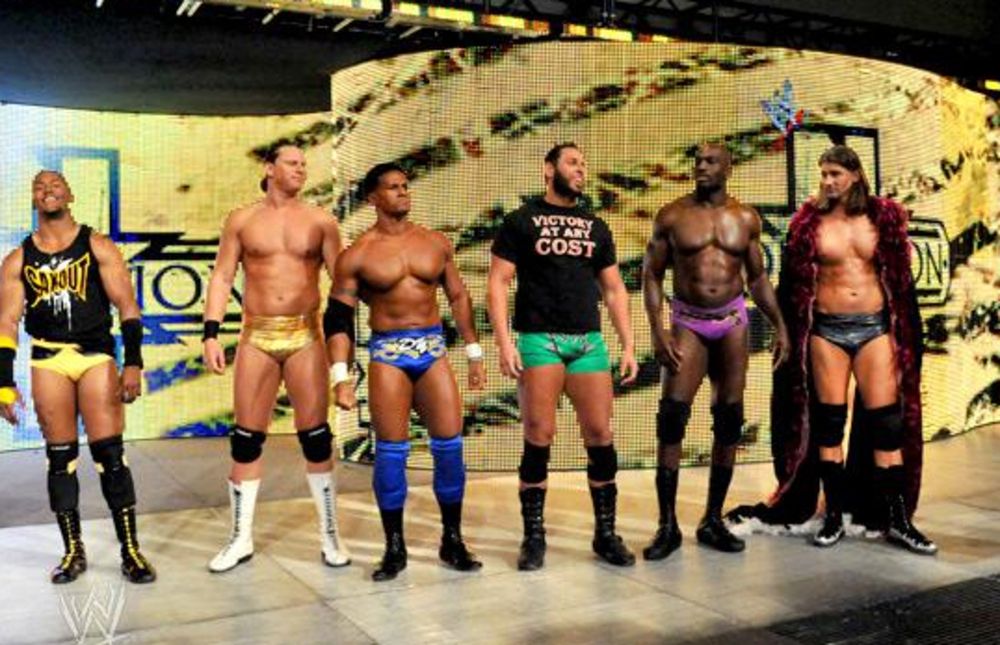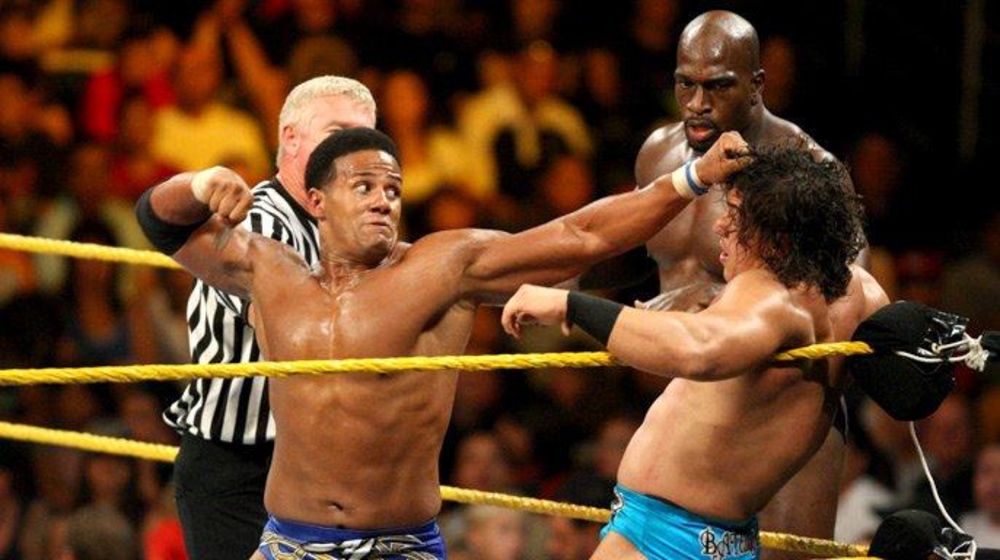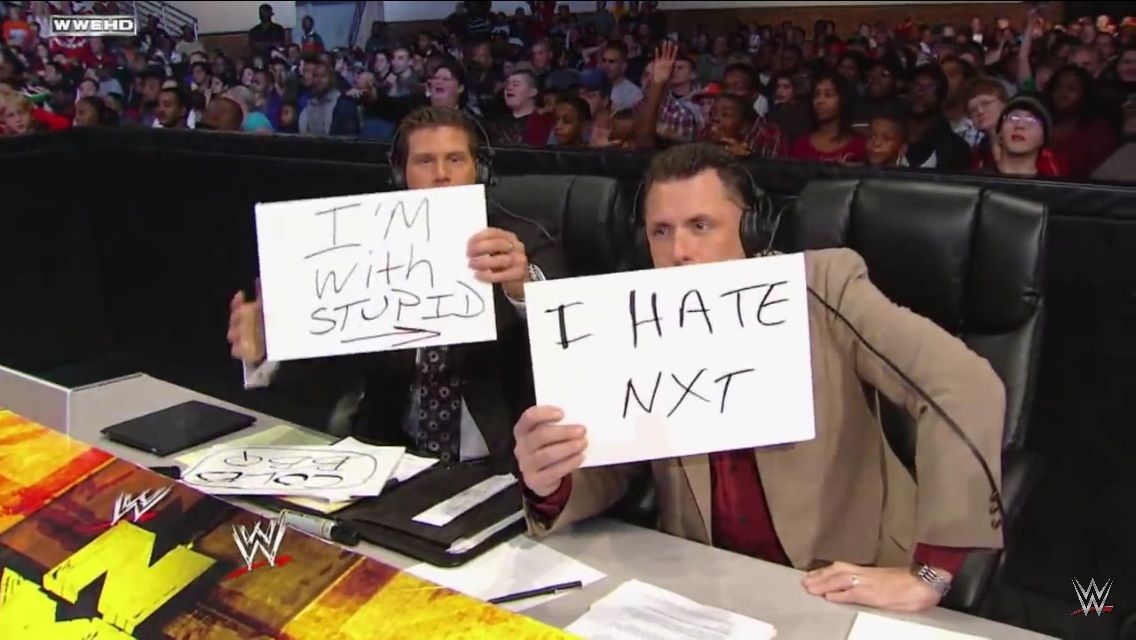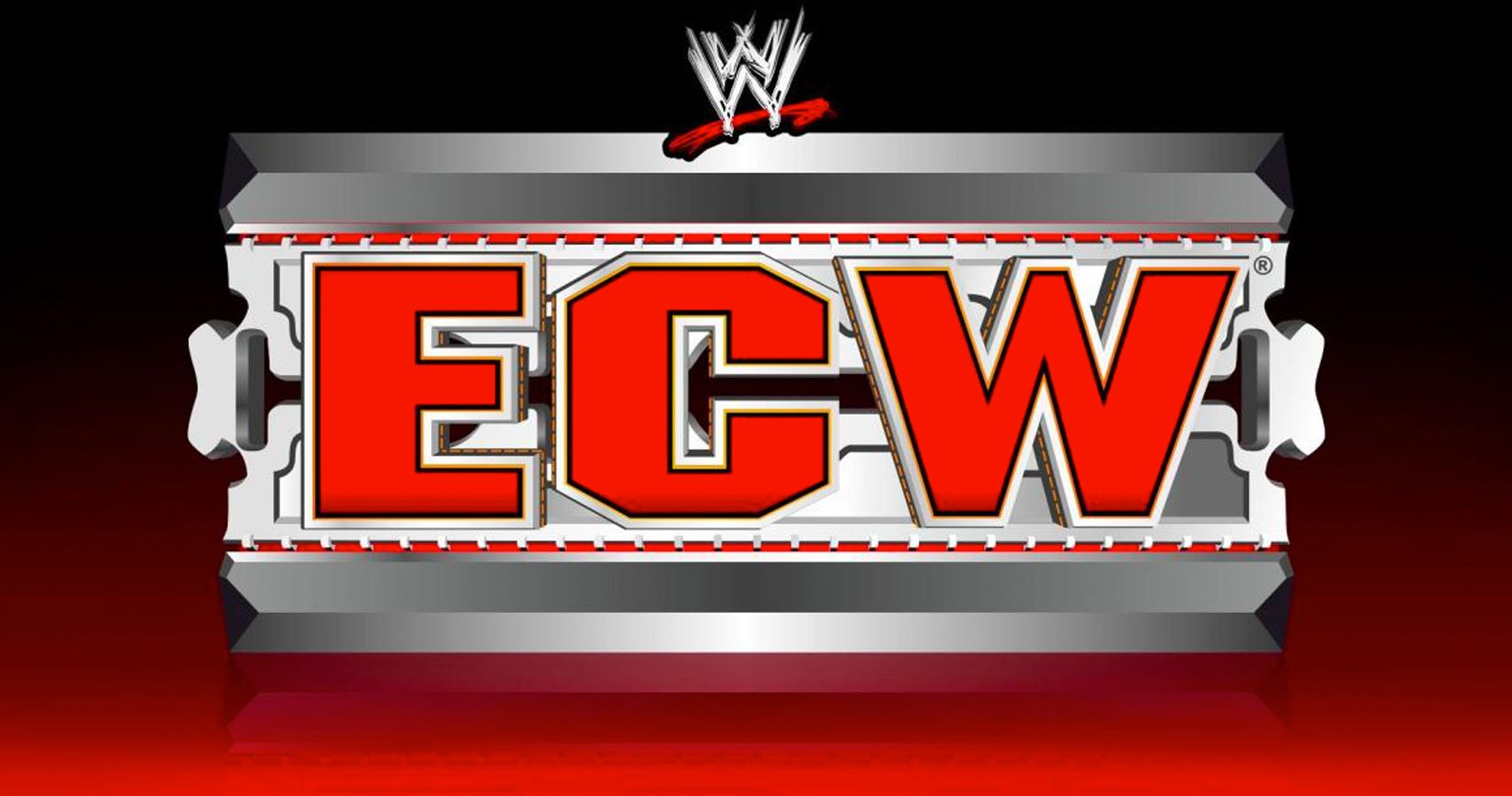Before NXT was WWE’s third brand -- and even before it was their developmental territory -- WWE NXT was an in-ring game show. Featuring talent from WWE’s developmental territory Florida Championship Wrestling, NXT paired “Rookies” from FCW with “Pros” from the main roster who functioned as mentors as WWE hopefuls competed to earn a spot on the roster.
Featuring a hybrid of in-ring competition and various challenges and games, the show was a far cry from what NXT would become at Full Sail University, and few fans actually look back fondly on it. WWE NXT contained so much baffling stuff, so it's not difficult to find elements of the series that made absolutely no sense.
10 The Pros
The use of main roster wrestlers as mentors was crucial to bringing viewers to NXT’s by imbuing the show with some star power. And NXT Season 1 had a decent amount of it, boasting Chris Jericho, Christian, The Miz, and Matt Hardy, among others. But as seasons went on, the idea of “star power” became increasingly tenuous as WWE stopped caring about the show. What were guys like Chris Masters, Yoshi Tatsu, and JTG going to teach anyone about becoming Superstars outside of wrestling on episodes of Superstars?
9 The Challenges
On NXT, Rookies raised their standings among fans and Pros alike not only by wrestling in matches but also by competing in various challenges. Sometimes these would be physical games like obstacle courses, while other times they would be more dubious endeavors like selling snacks or singing karaoke versions of WWE stars’ entrance music. Given that pro wrestling is all about having staged fights, it’s unclear how knowing WWE trivia would show that Connor O’Brian was meant for the big time.
8 The Renames
Because FCW aired regionally under the radar of most WWE fans, it was easy to bring developmental talent to the main roster with no regard for whatever they were doing in Tampa. As a result, some developmental talents showed up on NXT with some truly baffling name changes.
Suddenly, Joe Hennig became “Michael McGillicutty,” Duke Rotundo became “Husky Harris,” and -- worst of all -- Johnny Prime became “Lucky Cannon.” These renames were so embarrassing that it almost felt like some of these young wrestlers were set up to fail.
7 Eliminating Daniel Bryan
Speaking of wrestlers set up to fail, NXT Season 1 introduced indie wrestling sensation Bryan Danielson -- renamed Daniel Bryan -- and treated him like an absolute loser as Bryan racked up a 0-10 losing streak and ended up being the first wrestler eliminated from the show. While that dismal showing would ultimately contribute to Bryan’s underdog story in WWE, that likely wasn’t the plan at the time given The Nexus. Things worked out for Bryan, but NXT just made him look like a washout.
6 NXT Redemption
The fifth season, NXT Redemption, would prove to be a transitional season between the game show version and the Full Sail developmental version. Featuring contestants from previous seasons given a second chance to win, the show slowly moved away from the game show format. Challenges would disappear as Redemption became a charmingly weird undercard show that lasted an eternity at 67 episodes and seemingly made under little to no supervision from WWE management.
5 Redemption Points
In Season 4, NXT introduced “Immunity Points” which wrestlers could earn through challenges and spend to keep from being eliminated from the show. On NXT Redemption, these were replaced by “Redemption Points,” which ostensibly had a similar function, but never came into play. Wrestlers racked up Redemption Points as the season went on, but it was unclear what they were for, or how to use them.
4 Who Won Redemption?
As a by-product of dropping the game show format, NXT Redemption never had an official winner. Eliminations stopped about 18 weeks in, as the cast got whittled down to Titus O’Neil and Darren Young, with Derrick Bateman suddenly added to the mix.
So, who really won NXT Season 5? Both Young and O’Neil moved to SmackDown before the show ended, so they won by achieving the basic goal of the show. Then again, Derrick Bateman never got eliminated or removed from the show, so technically HE won. On the other hand, Bateman had 0 Redemption Points while O’Neil had 45 Points.
3 The Commentary
While the idea of NXT was to throw a bunch of developmental talent in the deep end and see how they fared, it more often felt like a way to publicly embarrass young wrestlers just starting in their WWE careers. The commentary on these shows certainly didn’t help matters, as anchoring the show was Michael Cole during his infamous heel run and Cole-clone Josh Mathews. The result was a show where commentary trashed everything in sight -- not only the wrestlers but the very concept of the show -- which made for frankly bizarre wrestling television.
2 Replacing ECW
From 2006 to 2010, WWE’s third brand was ECW, which started as a pale imitation of the 1990s hardcore promotion but soon evolved into an entity all its own, often serving as a stepping stone for developmental talent to gain some low-stakes TV experience before moving on to Raw and SmackDown. In a lot of ways, ECW was the original NXT, albeit with a name that carried more baggage. That WWE replaced a perfectly fine weekly wrestling show with a somewhat demeaning game show feels like one of the stranger decisions the company has ever made.
1 Using the Name for WWE Developmental
Over the course of two years, pre-Full Sail NXT went from a trainwreck game show on cable television to an under-the-radar wrestling show that only aired online. Given that, it’s wild that anyone in WWE thought that those three letters would be a suitable branding for WWE’s revamped developmental system in 2012. It ultimately worked out, and NXT has become WWE’s “cool” show where fans can expect classic matches, but who could have predicted that after a year of things like the “Talk The Talk Challenge?”

